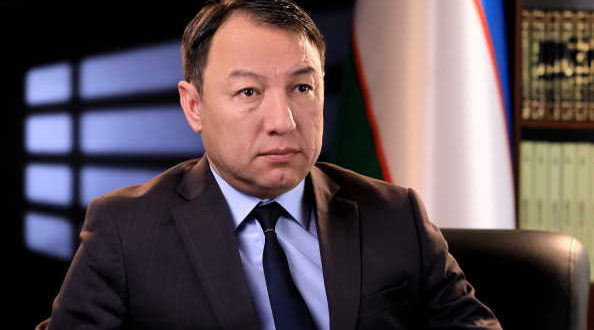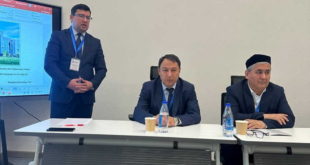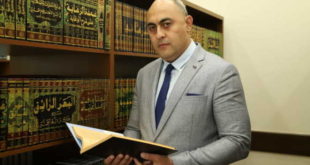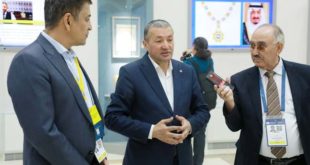Tashkent is preparing to host the next Consultative Meeting of the Central Asian countries’ leaders. On the eve of the summit, President Shavkat Mirziyoyev’s article, “Central Asia at the Threshold of a New Era”, was published.
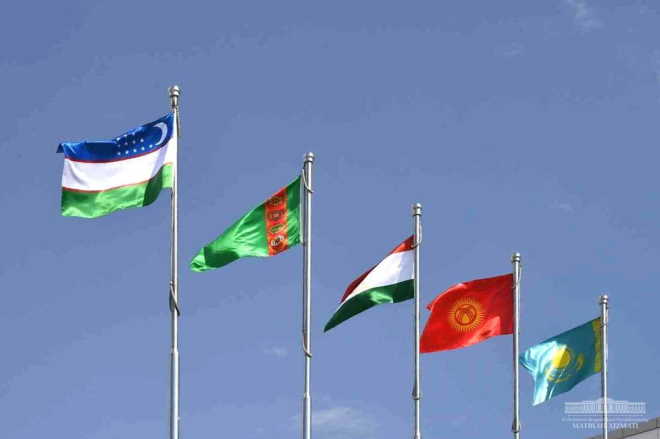 Over the past years, we have witnessed many transformations in the region. In its time, the Central Asian Regional Economic Cooperation Organization, ‘Turkistan – Our Common Home,’ the Central Asian Cooperation Organization, and several other structures were established. One often gave rise to another, as if the region were entering a new phase of development. The last of these merged with the Eurasian Economic Union (EAEU), thus marking the culmination of regional organizational efforts.
Over the past years, we have witnessed many transformations in the region. In its time, the Central Asian Regional Economic Cooperation Organization, ‘Turkistan – Our Common Home,’ the Central Asian Cooperation Organization, and several other structures were established. One often gave rise to another, as if the region were entering a new phase of development. The last of these merged with the Eurasian Economic Union (EAEU), thus marking the culmination of regional organizational efforts.
As for the results, there is little worth mentioning. Relations between the states remained largely unchanged. For instance, issues related to water and energy became so tense that there were even rumors of armed conflict. No progress was observed regarding border delimitation and demarcation. Although summits often emphasized mutual trust and shared interests, the reality of this ‘trust and shared interest’ was clearly reflected in the long-standing closed borders.
To be frank, the lives and destinies of millions of people in the region often depended on the moods, whims, and long-standing complicated relationships of a handful of leaders, as well as their unfair and capricious ambitions. Yet, we have always been neighbors, interacting with each other since time immemorial. Even during the years of independence, we remained faithful to noble, age-old traditions marrying off daughters and receiving brides from one another. However, after gaining independence, even after such weddings, meeting and visiting one another has become extremely difficult.
When it came to water issues, even though it originated from the “great elder,” the so-called well-meaning intermediaries who recognized nothing beyond their own position in the saddle would side with Uzbekistan when negotiating with us, yet align with our neighbor when speaking to them, never contributing anything beyond a disruption of equilibrium. Likewise, the “impartial analysts” would publish articles supporting us one day and supporting our neighbor the next, offering no substantive or balanced assessments. Although the game was obvious, senior political leaders kept turning interstate issues into personal conflicts.
In relations among neighboring states, if one were to ask, “What was the most detrimental factor?” the elders would often respond, “looking the other way” or “pretending not to see.” For millennia, our peoples had maintained close bonds, to the extent that even a single raisin would be shared among forty individuals. Yet within the political arena of Central Asia, the personality-driven actions and approaches of certain “power players” undermined this enduring unity.
A completely new approach began with the Consultative Meetings format introduced in 2017. On the initiative of Shavkat Mirziyoyev, the Presidents engaged in systematic and regular dialogue for the first time without external intermediaries. In this way, a new political mindset based on trust, transparency, and the recognition and appreciation of common interests took root. From that time onward, a number of longstanding disagreements were resolved, and true cooperation gradually replaced mistrust.
As highlighted in the President’s article, one of the most important achievements of this new phase has been the final resolution of border issues. What once seemed impossible has now become an everyday reality: the borders that once separated us now serve as channels of friendship and cooperation. For example, since September 2023, citizens of Uzbekistan and Kyrgyzstan have been crossing the border using ID cards. Ten years ago, this would have been unimaginable. Today, all state borders are legally formalized, and all issues that had been sources of tension for decades have been definitively settled.
We used to know that neighborliness is not a risk but an opportunity, and that the success of one should be the shared gain of all, yet we were reluctant to acknowledge it. Now, that mindset belongs to the past.
Today, it can be said with full confidence that Central Asia has united and strengthened its solidarity. The tendency is shifting from speaking behind each other’s backs to face-to-face dialogue, from undermining one another to standing shoulder to shoulder. As noted, even the most painful issues have been resolved. The region has now entered a phase of defining and jointly implementing pressing strategic tasks. Among these tasks, as highlighted in the article ‘Central Asia at the Threshold of a New Era,’ is turning agreements into tangible benefits and conveniences for citizens and businesses. Central Asian decisions should no longer remain mere documents; they must become a shared framework that ensures sustainable development across the region and improves people’s daily lives. This is an area of significant economic importance.
In practice, this covers key sectors such as transport communications, food, agriculture, pharmaceuticals, electric power, hydrocarbon reserves, mineral fertilizers, plant microbiology, high technologies, and automotive manufacturing. In some countries there is demand, in others supply—meaning we complement each other. What if both demand and supply align perfectly? That is even better, as we can jointly improve access to external markets and diversify cooperation. The crucial point is that today Central Asia is acting on the understanding that hostility and secret rivalry harm everyone, while cooperation and solidarity are primarily beneficial to ourselves
We knew this before, yet unfortunately, we did not act on it…
Alongside the positive aspects of globalization, there are also negative ones. Threats such as geopolitical and geoeconomic struggles, ecological crises, energy problems, and pandemics demand that we act more cohesively and in solidarity. None of these threats can be addressed individually, which makes this primarily a matter of security.
It is no secret that the geopolitical rivalries of major powers, various blocs, and similar structures can cause concern in regions that have little to do with them—they either draw those regions into their sphere or force them to take a position against opposition. This is the lesser danger. In some cases, certain countries may simply be considered ‘guilty’ for being in the wrong place at the wrong time. The same applies to geoeconomic struggles. Such threats have little impact on countries that are united in thought and cohesive politically, economically, and socially. After all, there is strength in numbers.
The article “Central Asia at the Threshold of a New Era” provides a detailed account and analysis of the significance of the Consultative Meeting format, the work accomplished so far, and the tasks that lie ahead. To summarize, our people say: ‘If the neighbor is at peace, you are at peace.’ Our ancestors also reminded us that ‘a neighbor nearby is better than a relative far away.
Finally, if I may, as the head of the Imam Bukhari institution, I would like to cite a relevant Hadith on this topic
It is narrated from Ibn Umar (may Allah be pleased with him):
“Angel Jibril (peace be upon him) kept exhorting me about (the rights of) the neighbor so much so that I thought that the neighbor might be included as one of the heirs” (Golden Chain, Sahih al-Bukhari, Vol. 7 – Tashkent: Hilol-nashr, 2018, p. 425).
In other words, in our sacred religion, the neighbor is given such a high status that one should regard them almost as an heir or close kin.
Another narration provides further basis for this understanding.
It is narrated from Abu Hurayra (may Allah be pleased with him):
“Whoever believes in Allah and the Last Day, should not hurt his neighbor and whoever believes in Allah and the Last Day, should serve his guest generously and whoever believes in Allah and the Last Day, should speak what is good or keep silent” (Golden Chain, Sahih al-Bukhari, Vol. 7 – Tashkent: Hilol-nashr, 2018, p. 427).
Islam strongly condemns causing harm to one’s neighbor.
Accordingly, the team at the Imam Bukhari International Research Center fully supports President Shavkat Mirziyoyev’s vision regarding the upcoming meeting of Central Asian leaders in our capital, together with the entire nation. The Tashkent summit will mark a new and important stage in jointly building a stable and prosperous Central Asia.
The meeting of the heads of state in Tashkent should serve as a continuation of the path we have started, reaffirming our countries’ commitment to mutual understanding and partnership, and achieving a fundamental breakthrough in deepening regional cooperation.
Indeed, it is expected to be so.
Shovosil Ziyodov,
Director, Imam Bukhari International
Scientific Research Center,
affiliated with the Cabinet of Ministers;
Doctor of Historical Sciences (D.Sc.), Professor.
 Imom Buxoriy xalqaro ilmiy-tadqiqot markazi bukhari.uz
Imom Buxoriy xalqaro ilmiy-tadqiqot markazi bukhari.uz







